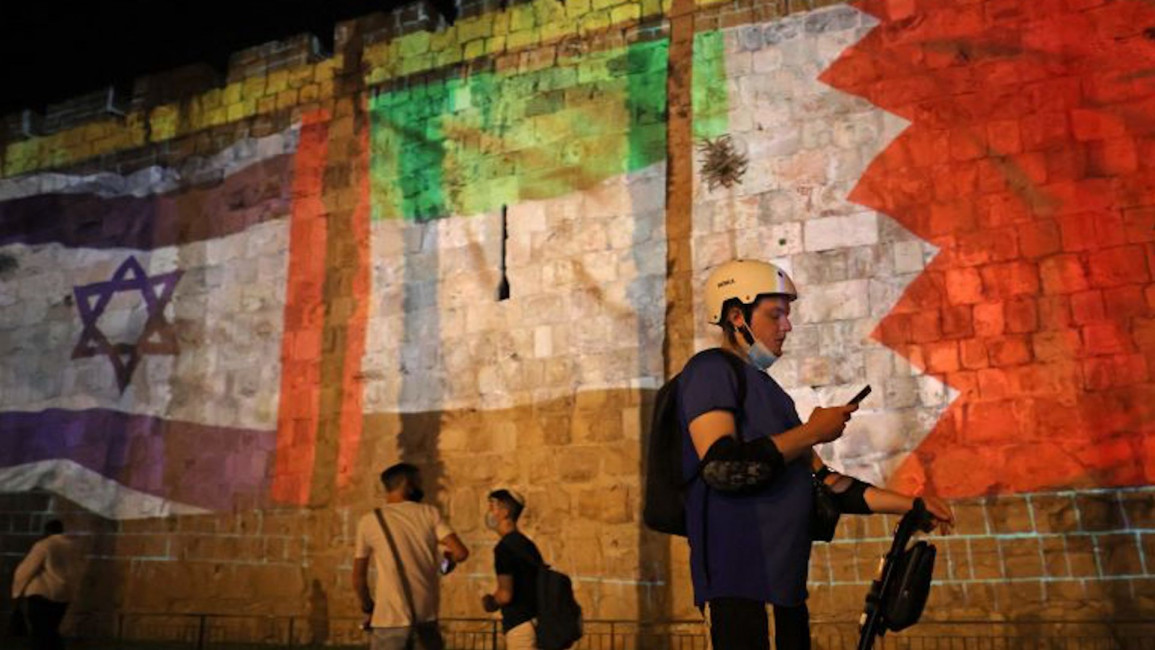Bahrain and Israel 'must collaborate on security to deter Iran': official
Bahrain's Undersecretary for International Relations, Abdulla bin Ahmed Al-Khalifa, has said Manama should cooperate more closely with Israel to combat Iran's influence in the region.
Al-Khalifa, who was in Israel for a visit this week, criticised the 2015 Iran nuclear deal - currently part of negotiations between Tehran and world powers - saying that it "fuelled crises" across the Middle East.
In an interview with The Jerusalem Post, Al-Khalifa said Israel and Bahrain should cooperate more closely against Iran.
"The Abraham Accords and relations between Bahrain and Israel were done for the purpose of peace and stability and the advancement of the region," Al-Khalifa said in the interview that was published on Wednesday.
"We do have collaboration on the security front," he said. "It's very important."
"There are common security challenges, but we come from Bahrain with a message of peace and prosperity. His Majesty King Hamad bin Isa Al-Khalifa has paved the way for taking that courageous step to build this relationship," he added.
Al-Khalifa said his country's relations with Israel is "nothing to shy away from".
"The relationship is based on trust and mutual interests. We are contributing on security and saving the lives of innocent civilians... Regional stability [and] security require collaboration, and there are continuous efforts to work collectively to address common challenges," he told the Israeli daily.
He also cast suspicions on negotiations between world powers and Iran to bring the US back to the nuclear accord.
"The US has been updating the foreign ministers of the [Gulf Cooperation Council] on the developments," he said.
"GCC countries, including Bahrain, have expressed their concerns that the deal is not addressing other concerns in the region like ballistic missiles and other malign behaviour. It seems apparent the talks will not address these. They will remain pending," he said.
"Maritime security is a very critical area the global community needs to focus on – having free flow of navigation, big dependence of energy from the region, and a growing volume of trade via the sea," said Al-Khalifa. "Bahrain has always paid attention to maritime security, being an archipelago."
Al-Khalifa branded a July attack on an Israeli vessel off the Gulf of Oman as “quite alarming". Israel, the US and the UK were quick to blame Iran for the attack which Tehran denied.
"It is the responsibility of the international community to ensure the maritime security... Bahrain continues to work closely with friends and allies to do so," he added.
In September, Bahrain became the second Gulf state to officially normalise relations with Israel.
The move came just weeks after then-US President Donald Trump made a shock announcement that the UAE had normalised relations with Israel.
Officials from Gulf states and Israel expressed that the Arab world has entered a "new era" with normalisation, and claimed that the conjunction of their regimes shows a more "progressive" attitude towards Israel.
At the time, Bahraini citizens silently protested normalisation with Israel, due to an ongoing crackdown on dissidents.
An Arabic hashtag which translates to "Bahrain against normalisation", became widely used.
"If it wasn't for the way in which protesters were suppressed during the Arab Spring, I can guarantee you that there would be thousands taking the streets in support for Palestine right now," a Bahraini activist who identified himself as Mohammad, told The New Arab at the time.


![South Sudan famine [AFP] South Sudan famine [AFP]](/sites/default/files/styles/image_330x185/public/media/images/5FED4B35-6177-43AD-844A-5C63373FCF89.jpg?h=d1cb525d&itok=TC12KIPv)
